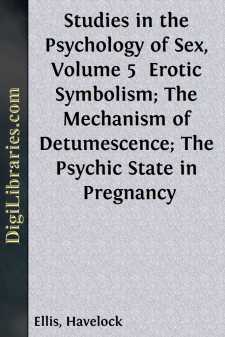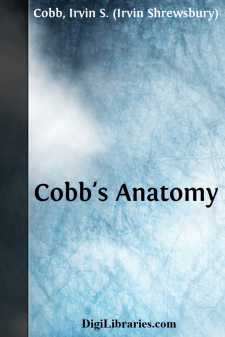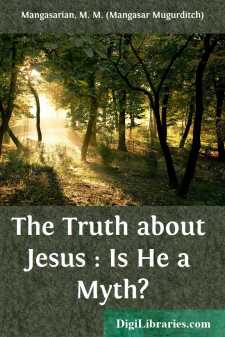Categories
- Antiques & Collectibles 13
- Architecture 36
- Art 48
- Bibles 22
- Biography & Autobiography 813
- Body, Mind & Spirit 142
- Business & Economics 28
- Children's Books 17
- Children's Fiction 14
- Computers 4
- Cooking 94
- Crafts & Hobbies 4
- Drama 346
- Education 46
- Family & Relationships 57
- Fiction 11829
- Games 19
- Gardening 17
- Health & Fitness 34
- History 1377
- House & Home 1
- Humor 147
- Juvenile Fiction 1873
- Juvenile Nonfiction 202
- Language Arts & Disciplines 88
- Law 16
- Literary Collections 686
- Literary Criticism 179
- Mathematics 13
- Medical 41
- Music 40
- Nature 179
- Non-Classifiable 1768
- Performing Arts 7
- Periodicals 1453
- Philosophy 64
- Photography 2
- Poetry 896
- Political Science 203
- Psychology 42
- Reference 154
- Religion 513
- Science 126
- Self-Help 84
- Social Science 81
- Sports & Recreation 34
- Study Aids 3
- Technology & Engineering 59
- Transportation 23
- Travel 463
- True Crime 29
Sort by:
by:
Simon Harward
THE PREFACEto all well minded. Art hath her first originall out of experience, which therefore is called the Schoole-mistresse of fooles, because she teacheth infallibly, and plainely, as drawing her knowledge out of the course of Nature, (which neuer failes in the generall) by the senses, feelingly apprehending, and comparing (with the helpe of the minde) the workes of nature; and as in all other...
more...
by:
Havelock Ellis
EROTIC SYMBOLISM. I. The Definition of Erotic Symbolism—Symbolism of Act and Symbolism of Object—Erotic Fetichism—Wide extension of the symbols of Sex—The Immense Variety of Possible Erotic Fetiches—The Normal Foundations of Erotic Symbolism—Classification of the Phenomena—The Tendency to Idealize the Defects of a Beloved Person—Stendhal's "Crystallization." By "erotic...
more...
by:
Thomas Clarkson
CHAPTER I. HISTORY OF THE ABOLITION OF THE SLAVE TRADE. No subject more pleasing than that of the removal of evils.—Evils have existed almost from the beginning of the world; but there is a power in our nature to counteract them—this power increased by Christianity.—Of the evils removed by Christianity one of the greatest is the Slave Trade.—The joy we ought to feel on its abolition from a...
more...
I ORIGIN OF THE POLICY OF ISOLATION The Monroe Doctrine and the policy of political isolation are two phases of American diplomacy so closely related that very few writers appear to draw any distinction between them. The Monroe Doctrine was in its origin nothing more than the assertion, with special application to the American continents, of the right of independent states to pursue their own careers...
more...
TUMMIES Dr. Woods Hutchinson says that fat people are happier than other people. How does Dr. Woods Hutchinson know? Did he ever have to leave the two top buttons of his vest unfastened on account of his extra chins? Has the pressure from within against the waistband where the watchfob is located ever been so great in his case that he had partially to undress himself to find out what time it was? Does...
more...
A PARABLE I am today twenty-five hundred years old. I have been dead for nearly as many years. My place of birth was Athens; my grave was not far from those of Xenophon and Plato, within view of the white glory of Athens and the shimmering waters of the Aegean sea. After sleeping in my grave for many centuries I awoke suddenly—I cannot tell how nor why—and was transported by a force beyond my...
more...
Science JOHN MILNE BRAMWELL Hypnotism: Its History, Practice and Theory John Milne Bramwell was born in Perth, Scotland, May 11, 1852. The son of a physician, he studied medicine in Edinburgh, and after obtaining his degree of M.B., in 1873, he settled at Goole, Yorkshire. Fired by the unfinished work of Braid, Bernheim and Liébeault, he began, in 1889, a series of hypnotic researches, which, together...
more...
GENERAL INTRODUCTION Books are as essentially a part of the home where boys and girls are growing into manhood and womanhood as any other part of the furnishings. Parents have no more right to starve a child’s mind than they have his body. If a child is to take his place among the men and women of his time he needs to know the past out of which the present grew, and he needs to know what is going on...
more...
by:
Vachel Lindsay
The Congo A Study of the Negro Race I. Their Basic Savagery Fat black bucks in a wine-barrel room,Barrel-house kings, with feet unstable, A deep rolling bass. Sagged and reeled and pounded on the table,Pounded on the table,Beat an empty barrel with the handle of a broom,Hard as they were able,Boom, boom, BOOM,With a silk umbrella and the handle of a broom,Boomlay, boomlay, boomlay, BOOM.THEN I had...
more...








![Catalan's Constant [Ramanujan's Formula]](https://digilibraries-com.s3.eu-central-1.amazonaws.com/covers/a8a86b1a-0d6f-4236-8e1d-75f82e547ebe.jpg)


